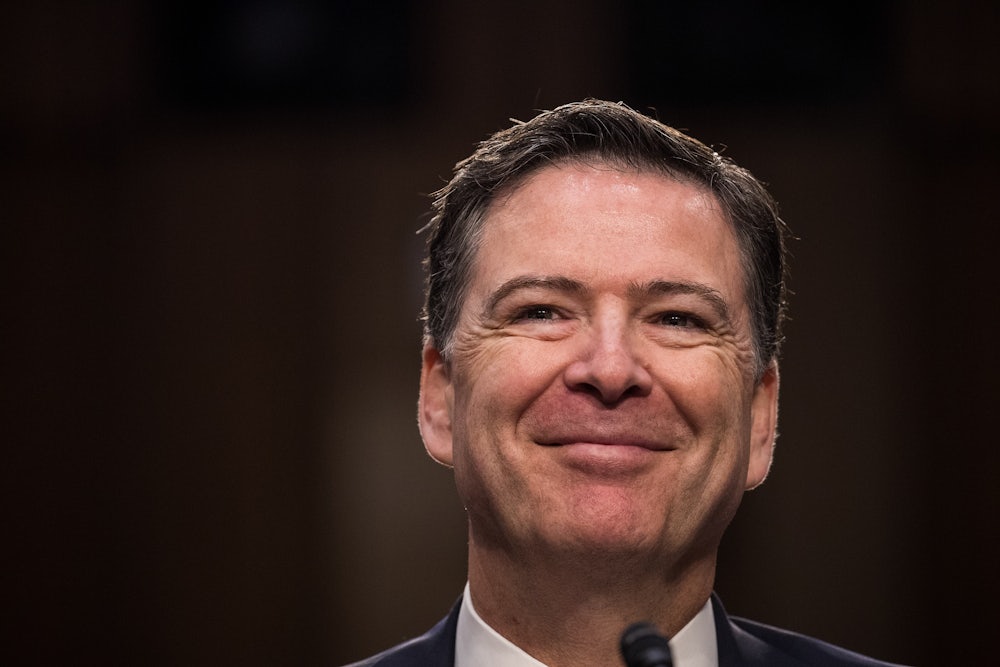Given the way that Comey’s previous appearances before Congress to discuss the Russia investigation have gone, it’s no surprise that many of the Republicans on the Senate Intelligence Committee are using the hearing to try to shield President Donald Trump and the White House. Over the course of the first hour of Comey’s testimony, Republicans have repeatedly sought to poke holes in the dominant narrative that has surrounded Comey’s firing, which is that Trump obstructed justice.
Mostly this has come in the form of semantic discussions about Comey’s discussions with Trump—if Trump was pressuring Comey to drop the Russia investigation entirely or merely the probe into Michael Flynn’s dealings with Russia (and Turkey). Here’s an exchange Comey had with Senator James Risch about his now infamous conversation with Trump about Flynn, which reads like a third-rate one-act play:
Risch: He did not direct you to let it go?
Comey: Not in his words, no.
Risch: Again those words are not an order? He said “I hope.”
Comey: The reason I keep saying his words is, I took it as a direction. This is the president of the United States. I took it as a direction.
Risch: You don’t know anyone who has been charged for hoping something?
Comey: As I sit here I don’t.
Senator Marco Rubio, who fifteen months ago made fun of the size of Donald Trump’s hands, used his time to play nice with Trump and try a similar tactic. While he was less semantic than Risch, he pressed Comey about what Trump really meant when he asked Comey for his loyalty, to drop the Flynn investigation, and to inform the public that Trump wasn’t under investigation. “The only thing that’s never been leaked is the fact that the president has never been under investigation,” Rubio said—strongly suggesting that the lack of leaks means that Trump is not under investigation. The Republicans on the Senate Intelligence Committee are pushing two narratives: That Trump did not obstruct justice in his conversation with Comey about Flynn and that Trump is not being investigated by the FBI, the suggestion being that, while his associates may have done bad things, Trump is not implicated.
But what all of this misses is what’s actually important. The nature of Trump’s conversation with Comey about Flynn, while far from immaterial, is secondary. There are really two smoking guns when it comes to obstruction of justice and Trump fired both of them. The first was when he fired Comey and the second was when he told Lester Holt that he did so because of the Russia investigation. The semantic argument that Republicans are making to try to defend Trump are already weak as hell but more importantly they don’t change those two facts. And Comey has only underscored the fact that he was fired over Russia. That’s what matters here.
